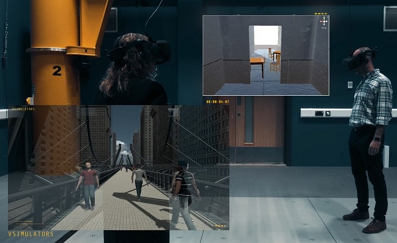VSimulators facility used to help people with Parkinson’s Disease
AMTI
The University of Exeter’s state-of-the-art VSimulators facility is being used as part of research funded by Parkinson’s UK.
Research aiming to train people with Parkinson’s Disease to shift their balance and overcome ‘freezing of gait’ – the feeling that one’s feet are stuck to the floor – has commenced as part of a three-year project.
Freezing of gait is associated with balance problems and anxiety; two areas identified, by people with Parkinson’s, as priorities for future research. The £246K Project Grant will support three project phases. First, Cineon Training will develop training materials for people to learn ‘weight-shifting strategies’. This will be achieved through a process of co-design with a team of people who experience freezing, their family members and specialist clinicians.
In the second project phase, the new VSimulators cutting-edge research facility will be used to induce freezing in participants and evaluate the potential influence of the weight-shift training on the ability to step from a freeze during a dynamic ‘free navigation task’; where participants walk in a virtual reality environment. They will do this over the world’s largest array of AMTI force platforms. This will provide unprecedented access to measurements of walking and freeze events that will undoubtedly progress our understanding of this common symptom of Parkinson’s.
The research team will then investigate whether the weight-shift training can be safely used to overcome freezing in places where it matters most and when people’s medication has worn off. They will travel to visit participants and measure their balance and anxiety-related thoughts in ‘freezing hotspots’.
Through this project, the research team will find out if weight-shift training is safe and useful, and how thought processes (particularly those relating to anxiety) influence freezing and the ability to use self-taught weight-shifting strategies.
Read more about the announcement here.
We recently spoke to the VSimulators team about how they are using technology at their new facility, read more.

